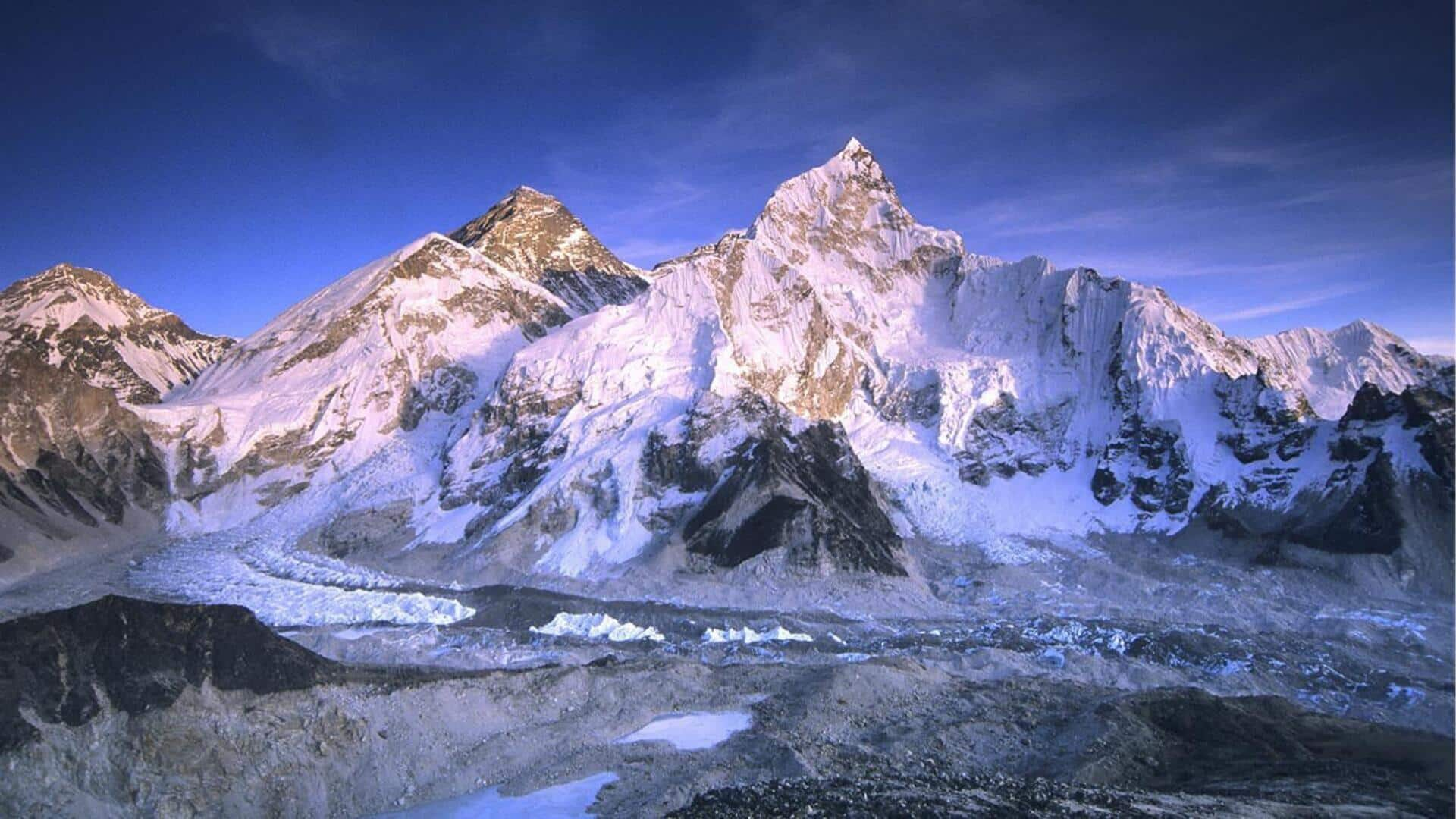
Mountains warming 50% faster than global average, study warns
What's the story
A new study has revealed that high-altitude areas, including the Himalayas, are warming at a rate nearly 50% faster than the global average since 1950. The research was conducted by an international team led by scientists from the UK's University of Portsmouth and published in Nature Reviews Earth and Environment. The findings highlight a phenomenon known as 'elevation-dependent climate change,' where environmental changes can accelerate at higher altitudes due to surface albedo, specific humidity, and aerosol levels in the air.
Climate parallels
Mountains and Arctic regions experience rapid climate change
The lead researcher of the study, Nick Pepin, highlighted that mountains share many characteristics with Arctic regions and are undergoing similar rapid changes. He said both environments are losing snow and ice at an alarming rate while witnessing profound ecosystem changes. However, Pepin also noted that as one ascends higher into the mountains, the rate of climate change can become even more intense due to elevation-dependent climate change.
Sensitivity variation
Regional variation in elevation-dependent climate change
Pepin clarified that it's not just the highest mountains that are most sensitive to elevation-dependent climate change. He said while climate change is accelerating at higher elevations on average, there is a lot of regional variation. In many cases, loss of snow is an important driving factor for this phenomenon, with intermediate elevations where snow has receded changing the most quickly.
Influencing factors
Aerosols and snow loss accelerate climate change in mountains
Pepin also emphasized the role of aerosols from lowland areas, like those in India and China, in accelerating melt and loss of snow/ice. The research team analyzed data from global datasets and case studies from mountain ranges such as the Alps, Tibetan Plateau, and High-Mountains Asia. From 1980 to 2020, mountains warmed 0.21°C faster per century than lowlands. They also saw 11.5mm less rainfall and 25.6mm more snow loss per century compared to lowland areas.
Global implications
Climate change impacts over 1 billion people globally
The study's authors observed that elevation-dependent warming (EDW) is evident at historical and longer timescales. They noted that despite variations according to time of day, season, and location, the mean warming at high elevations has been nearly 50% faster than the global mean since 1950. The implications of these changes extend beyond mountain communities as over one billion people worldwide rely on mountain snow and glaciers for water supply.